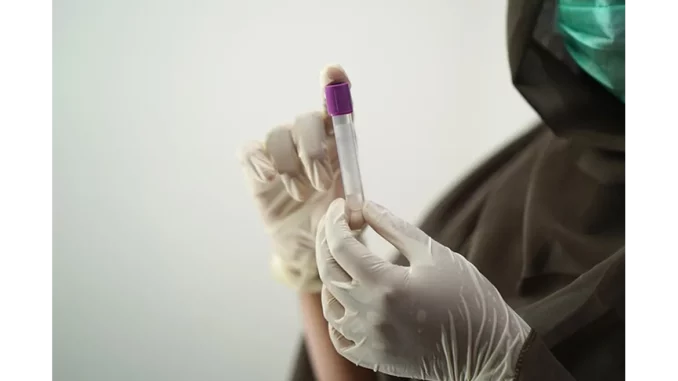
Breast cancer continues to be one of the most widespread diseases affecting women globally, underscoring the critical need for effective early detection methods. The significance of identifying breast cancer in its nascent stages cannot be overstated, as doing so dramatically enhances the prospects of successful treatment and increases survival rates. Historically, traditional diagnostic practices such as mammograms, ultrasounds, and biopsies have formed the backbone of breast cancer detection. However, a groundbreaking advancement in medical technology now offers a promising alternative: an artificial intelligence-driven blood test capable of identifying the earliest manifestations of breast cancer.
Pioneering research conducted by the University of Edinburgh has unveiled an innovative screening technique that merges laser analysis with artificial intelligence. Presented in the esteemed Journal of Biophotonics, this approach has demonstrated impressive potential in detecting breast cancer at stage 1a— a stage often elusive to conventional testing methods. At the core of this new method lies Raman spectroscopy, a technique that involves directing a laser beam into blood plasma samples. The resulting interaction between the light and the blood provides data that is meticulously analysed by a spectrometer, revealing subtle modifications in the chemical composition of cells and tissues. These minuscule changes serve as early indicators of the disease. The data gathered is then processed by a sophisticated machine learning algorithm, which classifies the samples and identifies features suggestive of breast cancer.
In an initial study involving 12 breast cancer patients and 12 healthy individuals, this AI-enhanced method achieved a remarkable 98% accuracy rate in detecting stage 1a breast cancer. Furthermore, it demonstrated the ability to differentiate between the four primary subtypes of breast cancer with an accuracy exceeding 90%. This level of precision could pave the way for bespoke treatment plans, thereby improving patient outcomes significantly. The potential ramifications of this technological advancement are considerable. By enabling early detection, the AI-driven blood test could substantially lower mortality rates associated with late-stage breast cancer diagnoses. Dr Andy Downes, the lead researcher of the study, highlighted the potential for this technology to extend to other cancer types, emphasising the vision for a comprehensive multi-cancer screening test.
The study’s outcomes have sparked considerable excitement within the medical community, hinting at a future where a simple blood test could become a standard component of cancer screening protocols. Such an advancement would not only make screening more accessible but also reduce reliance on invasive procedures like biopsies. Additionally, in regions where access to advanced imaging technologies is limited, such a test could prove particularly advantageous. Nevertheless, before this technology can be adopted on a broad scale, further research and larger clinical trials are essential. The researchers are committed to expanding their study to encompass a more diverse participant pool and to assess the test’s applicability to other cancer types. The fusion of AI and machine learning in medical diagnostics signifies a substantial leap forward, offering a glimpse into a future where early cancer detection is more precise, accessible, and tailored to individual patients.
The development of this AI-powered blood test represents a pivotal moment in the ongoing battle against breast cancer. As research progresses and the technology becomes more refined, it holds the potential to revolutionise cancer screening and improve survival rates for countless individuals worldwide. Although the journey from laboratory to clinical application may present challenges, the potential benefits for public health are immense. The promise of transforming cancer screening through a simple, precise blood test could herald a new era in medical diagnostics, ultimately enhancing the efficacy of treatment and the quality of life for patients across the globe.


Be the first to comment